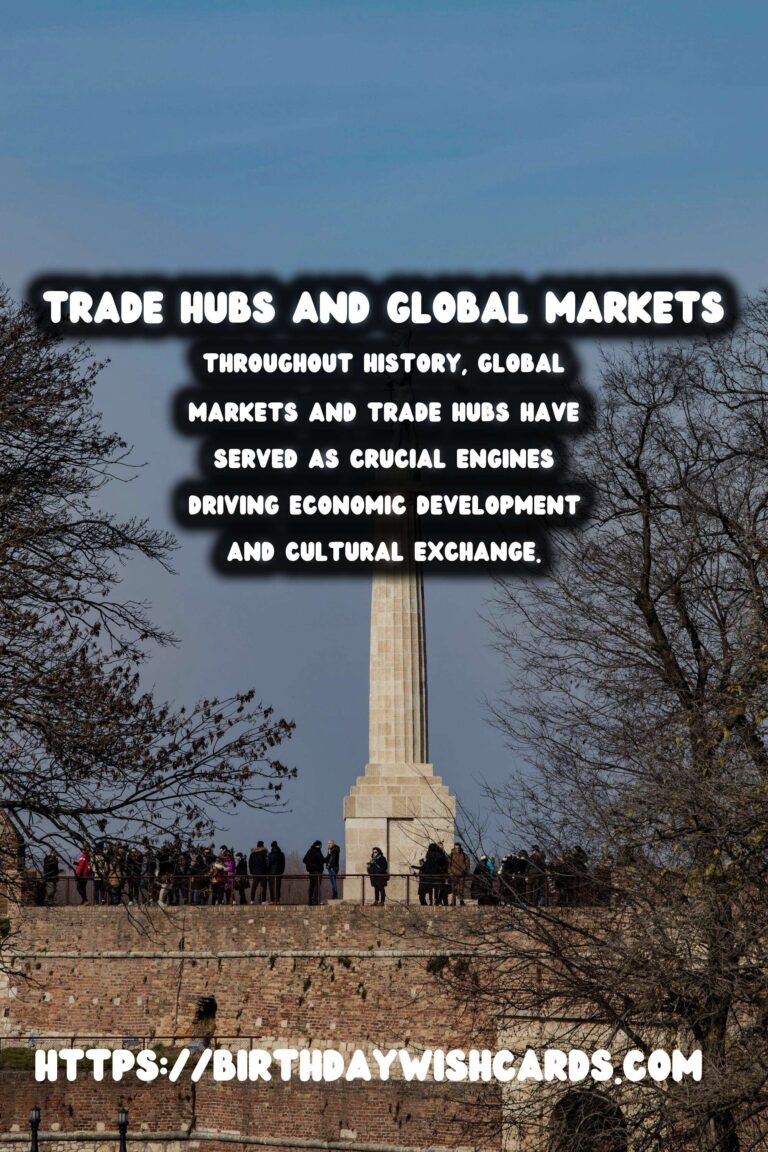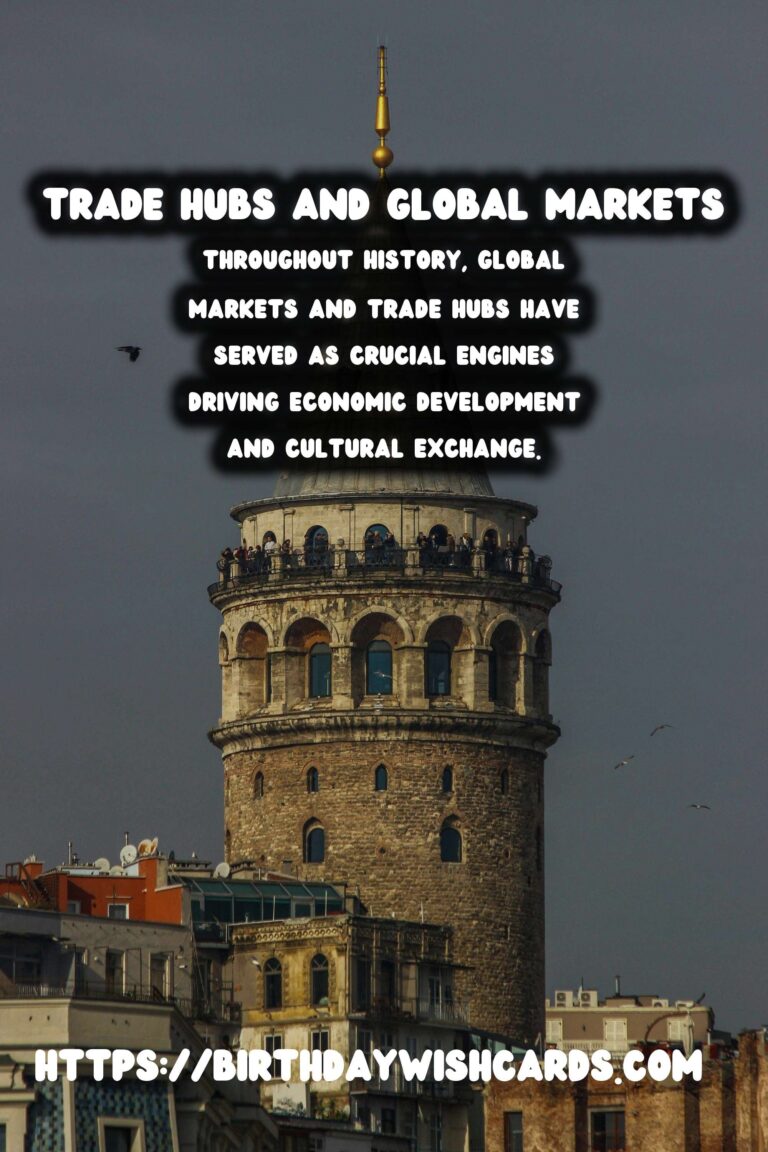
Throughout history, global markets and trade hubs have served as crucial engines driving economic development and cultural exchange. These centers of commerce not only facilitated the movement of goods but also ideas and people, leaving profound impacts on societies worldwide.
Ancient Markets: The Birthplaces of Trade
From the bustling bazaars of the Middle East to the grand markets of China, ancient trade hubs were the heartbeat of their civilizations. They enabled the exchange of local goods, such as spices, textiles, and precious metals, setting the foundation for global trade networks.
The Silk Road, stretching from China to the Mediterranean, symbolizes the intertwining of economies and cultures across continents. Silk, spices, paper, and pottery traversed this vast network, creating economic ties and spreading cultural innovations.
The Role of Ports in Global Trade
Ports have historically been pivotal in establishing trade relationships. For example, the ancient port of Alexandria flourished as a hub of trade and knowledge in the Hellenistic period.
During the Age of Discovery, ports like Lisbon, Venice, and Amsterdam emerged as new trade powerhouses, capitalizing on maritime routes to the New World, Asia, and Africa.
Colonialism and Trade Monopoly
The European colonial period marked an era where new trade routes reshaped global commerce profoundly. Colonies served as sources of raw materials, which were processed and traded by European powers, giving rise to monopolies that controlled the flow of these goods.
Companies such as the British East India Company and the Dutch East India Company dominated trade, paving the way for modern-day multinational corporations.
Impact on Cultures and Societies
Trade hubs have always been melting pots of cultures. The cross-cultural interactions facilitated by global trade not only enriched societies but also introduced new cultural practices, languages, and cuisines.
Mediterranean ports like Carthage and Constantinople became epicenters of cultural exchange, bringing diverse groups together through trade.
The Modern Era: Global Trade and Technology
In today’s interconnected world, technology has taken trade to unprecedented heights, transforming how goods are produced, marketed, and consumed globally. Modern trade hubs such as New York, London, and Singapore are major players in the global market, heavily influencing international trade policies and practices.
The rise of e-commerce platforms and logistics technology further accelerate global trade, breaking traditional barriers and connecting consumers and producers like never before.
Challenges and Future Prospects
Despite modern advancements, global trade faces numerous challenges, including trade wars, economic sanctions, and environmental concerns. The sustainability of these trade practices is increasingly under scrutiny as nations seek to balance economic growth with ecological responsibility.
The future of global markets will likely hinge on fostering equitable trade practices, embracing technology, and addressing the environmental impacts of commerce to ensure a sustainable path forward.
Throughout history, global markets and trade hubs have served as crucial engines driving economic development and cultural exchange. In today’s interconnected world, technology has taken trade to unprecedented heights, transforming how goods are produced, marketed, and consumed globally.
#GlobalTrade #HistoricalMarkets

